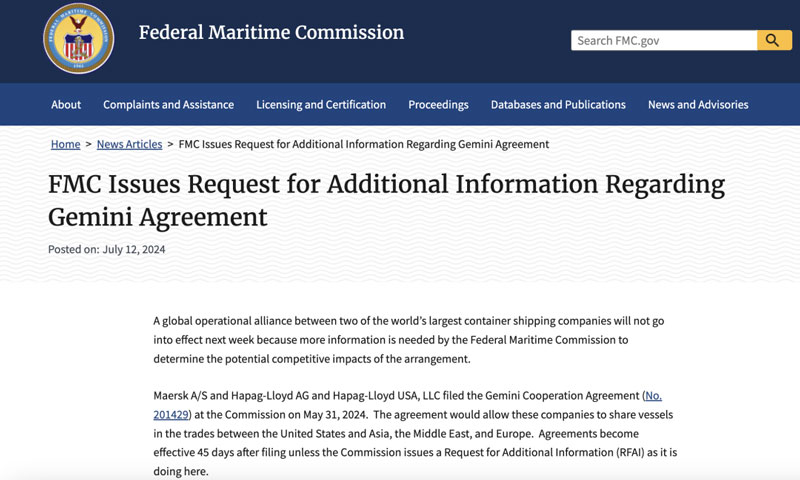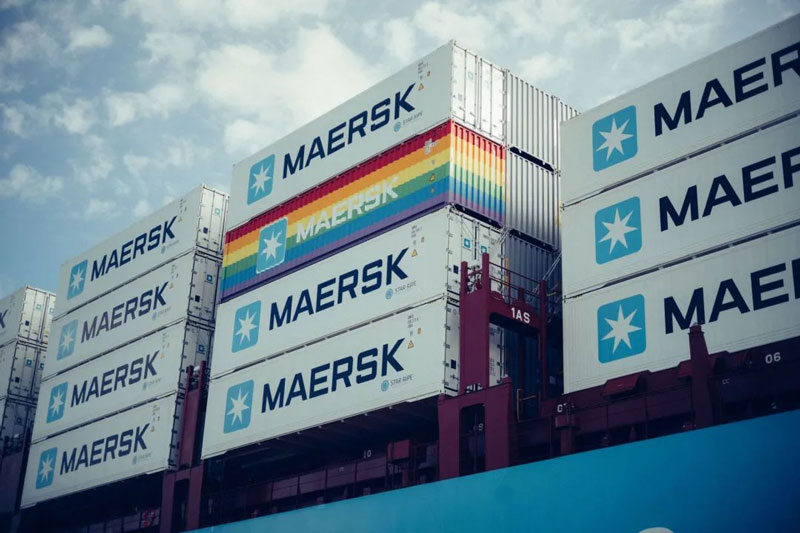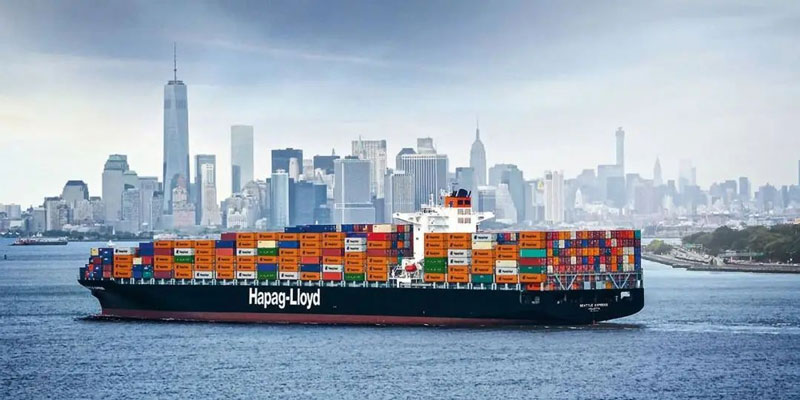

The FMC delayed approval of the Gemini alliance and launched an investigation
On July 12, the Gemini cooperation review proposed by Maersk and Hapag Lloyd, two of the world's largest liner giants, was delayed by the U.S. Federal Maritime Commission (FMC), causing widespread concern and discussion in the industry.
The FMC's review seeks to determine whether the cooperation agreement is likely to lead to an unreasonable reduction in transportation services or an unreasonable increase in transportation costs by reducing competition, or whether it would substantially lessen competition for the purchase of certain covered services.
Maersk and Hapag Lloyd are the world's second and fifth largest container lines, respectively. In January 2024, the two companies announced their plan to collaborate on a long-term operational collaboration program called Gemini, covering 26 trunk services across seven major trade routes, starting in February 2025.
Cooperation agreements between liner companies have sparked widespread controversy during the pandemic. Critics point out that the high concentration of the industry has resulted in more than 80% of the capacity being controlled by a few companies, which has limited competition in the market. However, the World Shipping Council (WSC) has defended its member companies, arguing that sharing capacity and routes provides better and better access, while companies still set prices independently and negotiate competitive freight contracts.
The FMC's review seeks to determine whether the cooperation agreement is likely to lead to an unreasonable reduction in transportation services or an unreasonable increase in transportation costs by reducing competition, or whether it would substantially lessen competition for the purchase of certain covered services.

Maersk and Hapag Lloyd are the world's second and fifth largest container lines, respectively. In January 2024, the two companies announced their plan to collaborate on a long-term operational collaboration program called Gemini, covering 26 trunk services across seven major trade routes, starting in February 2025.

Cooperation agreements between liner companies have sparked widespread controversy during the pandemic. Critics point out that the high concentration of the industry has resulted in more than 80% of the capacity being controlled by a few companies, which has limited competition in the market. However, the World Shipping Council (WSC) has defended its member companies, arguing that sharing capacity and routes provides better and better access, while companies still set prices independently and negotiate competitive freight contracts.






